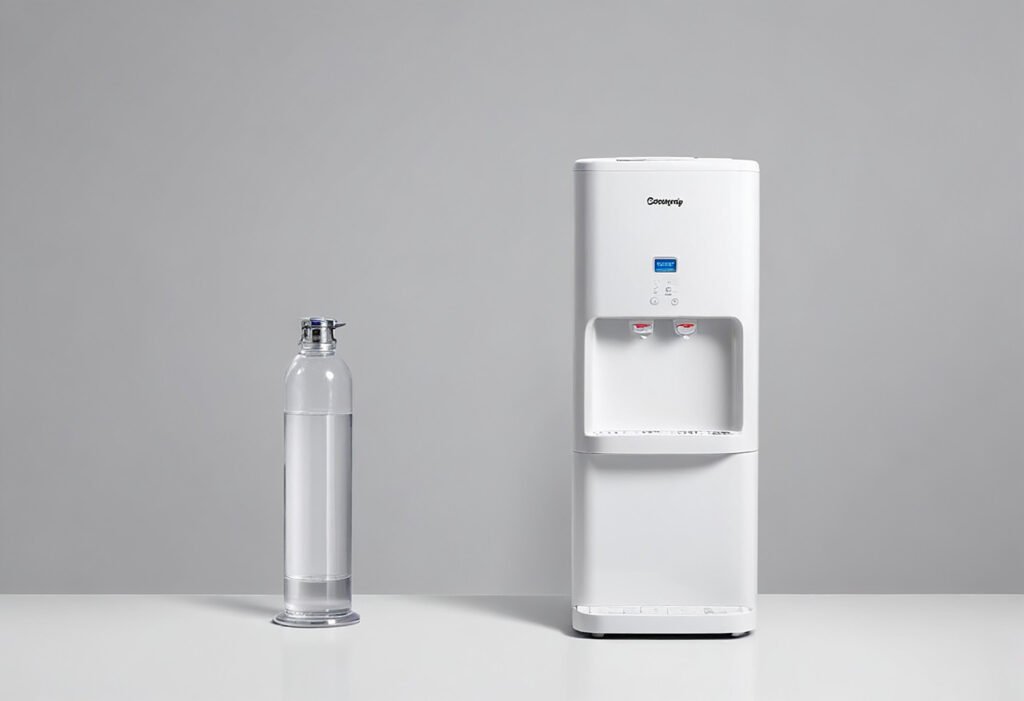Malaysia is increasingly grappling with the issue of having sufficient clean and safe drinking water. With growing urbanization and industrialization, water quality issues are on the rise, posing a threat to the health of millions. This has made it more crucial than ever to have a water filter. Not only are water filters great for overall health because of the reduction in exposure to toxic contaminants, but they also benefit the environment in terms of plastic waste reduction. This article talks about the necessity of water filters in Malaysian homes and how they are good for health and the environment, as well as tips on choosing and maintaining a water filter.
Overview of Water Quality Issues in Malaysia
Malaysia is well-endowed with water resources, but the quality can be very uneven. Drinking water integrity may be compromised by issues such as industrial effluent contamination, farm runoff, and inadequate sewage treatment. Tap water usually has the following contaminants:
- Microorganisms: Viruses and bacteria can cause severe gastrointestinal disease.
- Heavy Metals: Contaminants such as lead and arsenic have health consequences in the long term, including developmental malformations in children.
- Chlorine and Chloramines: While they are employed in disinfection, these chemicals affect taste and cause skin irritation.
Considering these problems, it is not a good idea to exclusively use tap water for drinking and cooking purposes. A water filter can address these problems, enabling you and your family to enjoy safe and clean drinking water.
Health Benefits of Using a Water Filter
Reducing Exposure to Contaminants
Perhaps the most critical justification for investing in a water filter is the significant elimination of hazardous impurities from drinking water. Filtration technologies such as activated carbon, reverse osmosis, and ultraviolet (UV) treatment all succeed in removing impurities so that the water you drink is healthy and safe.
- Activated Carbon Filters: Activated carbon filters are effective at removing chlorine, sediment, and volatile organic compounds (VOCs), greatly improving the taste and odor of water.
- Reverse Osmosis Systems: RO systems are highly effective at removing heavy metals, salts, and microorganisms, and are therefore ideal for homes that are concerned about water purity.
- UV Filters: UV filtration systems use ultraviolet light to kill bacteria and viruses, providing an additional layer of protection against pathogens.
Enhancing the Flavor of Water
The majority of Malaysians find that tap water tastes or smells unpleasant due to chlorine and other chemicals introduced during the treatment process. Water filters improve the taste of drinking water so much that it is more acceptable to consume. This encourages individuals to drink more water, resulting in better hydration habits. Proper hydration is essential for general health, affecting digestion to skin condition.
Environmental Benefits of Having a Water Filter
Reducing Plastic Waste from Bottled Water
Plastic pollution is perhaps the most pressing environmental issue of our time. In Malaysia, bottled water is used by most residents as a source of safe drinking water, contributing to the growing problem of plastic waste. Malaysia generates an estimated million tons of plastic waste every year, much of which comes from single-use water bottles.
With a water filter, you can greatly reduce your consumption of bottled water. Not only does that decrease waste as plastic, but it also decreases the environmental expense of producing, distributing, and disposing of plastic bottles. This is an easy yet effective way to assist in bringing about a more sustainable world.
Energy Savings
Using a water filter can also lead to energy savings. Bottled water production requires significant energy for manufacturing, transportation, and refrigeration. By filtering your tap water, you are reducing the overall demand for bottled water, resulting in lower energy consumption and a smaller carbon footprint.
Tips for Choosing and Maintaining a Water Filter
Choosing the Right Water Filter
When selecting a water filter for your home, consider the following factors:
- Type of Filtration: Determine which contaminants you need to remove from your water. If heavy metals are a concern, a reverse osmosis system may be best. For general taste and odor improvement, activated carbon filters are effective.
- Capacity: Consider your household’s water consumption. Larger families may require point-of-use systems or whole-house filters, while singles or couples might opt for simpler countertop or pitcher filters.
- Certification: Look for filters that are certified by reputable organizations, such as NSF International or the Water Quality Association. These certifications ensure that the filter meets performance standards for contaminant removal.
- Budget: Filters come in a range of prices. Factor in the initial investment and ongoing maintenance costs, such as filter replacements, when making your decision.
Maintaining Your Water Filter
Proper maintenance is essential for ensuring that your water filter continues to operate effectively. Here are some tips:
- Regular Filter Replacement: Follow the manufacturer’s guidelines for filter replacement frequency. Neglecting to replace filters can lead to reduced performance and potential contamination.
- Clean the Filter System: Regularly clean the filter housing and any removable components to prevent mold and bacteria growth.
- Monitor Water Quality: Periodically test your water quality to ensure that your filter is functioning correctly. Home testing kits are available and can help you detect contaminants that may not be removed.
- Store Properly: If you use a pitcher filter or a similar system, store it in a cool, dry place to prevent mold growth.
Conclusion
Every Malaysian home can benefit from the use of a water filter, both for health and environmental reasons. With the increasing concerns about water quality and the prevalence of contaminants, investing in a reliable water filter is a proactive step toward ensuring safe drinking water for your family.
Not only do water filters improve health by reducing exposure to harmful substances and enhancing the taste of water, but they also contribute positively to the environment by minimizing plastic waste. By choosing and maintaining the right water filter, you can enjoy clean, safe drinking water while making a sustainable choice that benefits both your family and the planet.
